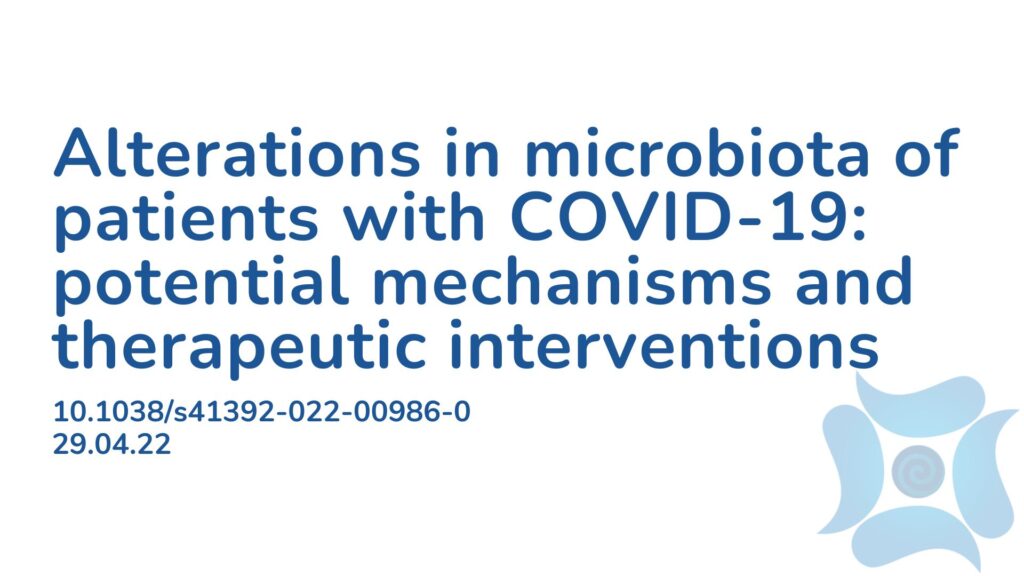Summary: This paper discusses the role of the COVID-19 virus on the human microbiota, as emerging evidence from clinical studies has suggested that respiratory and gastrointestinal homeostasis is disturbed in the human microbiota post a COVID-19 infection, and is one of the main contributing factors to mortality and morbidity. This paper also explores various interventions that target the human digestive tract and microbiota, such as fecal microbiota transplantation, prebiotics and probiotics. The researchers explore the role of these microbiota-based therapies in the prevention and treatment of COVID-19. The link between COVID-19 and short-chain fatty acids (SCFAs) is also explored, due to their role in influencing the immune response. Research shows that SCFAs derived from gut microbiota may promote anti-SARS-CoV-2 antibody production and inhibit the development of COVID-19. This paper sheds light on the human microbiota having powerful immunomodulatory factors in human health and viral infections, and that targeting the microbiota is a promising strategy for the prevention and treatment of COVID-19.
Abstract: The global coronavirus disease 2019 (COVID-19) pandemic is currently ongoing. It is caused by severe acute respiratory syndrome coronavirus 2 (SARS-CoV-2). A high proportion of COVID-19 patients exhibit gastrointestinal manifestations such as diarrhea, nausea, or vomiting. Moreover, the respiratory and gastrointestinal tracts are the primary habitats of human microbiota and targets for SARS-CoV-2 infection as they express angiotensin-converting enzyme-2 (ACE2) and transmembrane protease serine 2 (TMPRSS2) at high levels. There is accumulating evidence that the microbiota are significantly altered in patients with COVID-19 and post-acute COVID-19 syndrome (PACS). Microbiota are powerful immunomodulatory factors in various human diseases, such as diabetes, obesity, cancers, ulcerative colitis, Crohn’s disease, and certain viral infections. In the present review, we explore the associations between host microbiota and COVID-19 in terms of their clinical relevance. Microbiota-derived metabolites or components are the main mediators of microbiota-host interactions that influence host immunity. Hence, we discuss the potential mechanisms by which microbiota-derived metabolites or components modulate the host immune responses to SARS-CoV-2 infection. Finally, we review and discuss a variety of possible microbiota-based prophylaxes and therapies for COVID-19 and PACS, including fecal microbiota transplantation (FMT), probiotics, prebiotics, microbiota-derived metabolites, and engineered symbiotic bacteria. This treatment strategy could modulate host microbiota and mitigate virus-induced inflammation.
Article Publication Date: 29.04.22
DOI: 10.1038/s41392-022-00986-0




